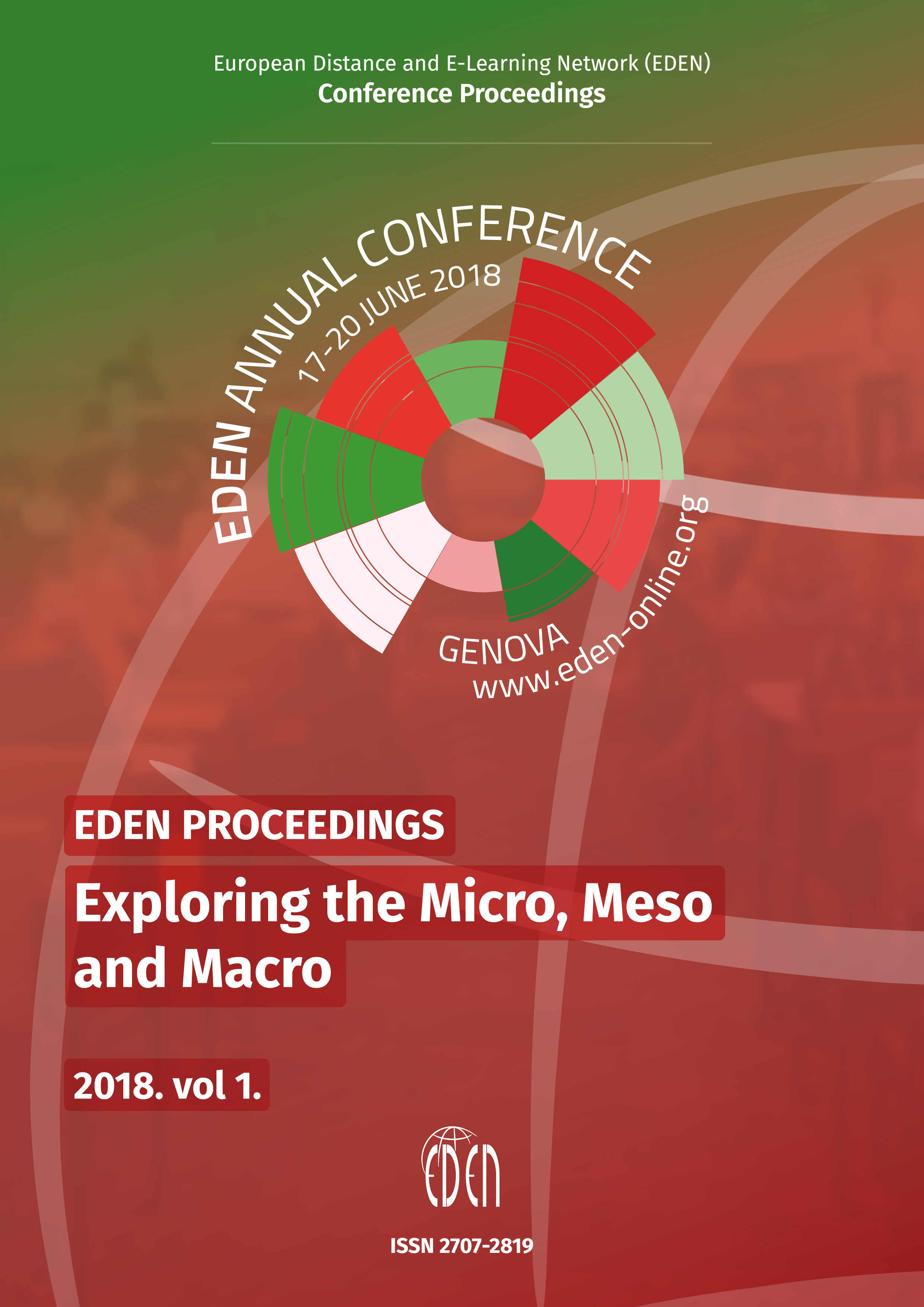Boundary Crossing: International Students’ Negotiating Higher Education Learning with Digital Tools and Resources
Boundary Crossing: International Students’ Negotiating Higher Education Learning with Digital Tools and Resources
Author(s): Mengjie Jiang, Palitha EdirisinghaSubject(s): Social Sciences, Education, Higher Education
Published by: European Distance and E-Learning Network
Keywords: Communication and learning; Cultural context of e-learning; Learning effectiveness; improvement of learning experience; Learning innovation; Online learning environments and platforms
Summary/Abstract: This paper draws on qualitative data from a research on Chinese international students at the University of Leicester in the UK and reports on the appropriation of digital tools during their intercultural adaptation. The paper brings two theoretical approaches to improve our understanding how international students make sense of, and use digital tools and resources when they begin to adapt to a new higher education environment. One theoretical lense is appropriation of cultural resources, the process through which digital tools are shaped in use, which draws on the work of Pachler et al. (2010). The other approach draws on the model of boundary crossing (Akkerman & Bakker, 2011), which provides an alternative route to understand appropriation of digital tools as boundary crossing tools. Adopting such theoretical approaches allows an interpretation that boundary can carry learning potential through the spectrum of transformative learning where students are seen as active agents shaping their learning trajectories. It also contributes to the debates around the deficit view of internationalisation that portray international students as victims or problems while dichotomies the learning strategies of students from Asia and the West. The study highlights that Chinese international students’ intercultural leaning experience involves ongoing engagement with social networks and artefacts. There is also an aspect of the expansion of their capacity at a personal level and strategic agency to appropriate digital tools and services to cross different sociocultural contexts such as bridging political, cultural and language differences.Understanding this is important in a context where learning becomes increasingly mediated by technologies which can contribute to improving pedagogical approaches for using digital tools and services to engage international students.
Journal: European Distance and E-Learning Network (EDEN) Conference Proceedings
- Issue Year: 2018
- Issue No: 1
- Page Range: 417-428
- Page Count: 12
- Language: English

